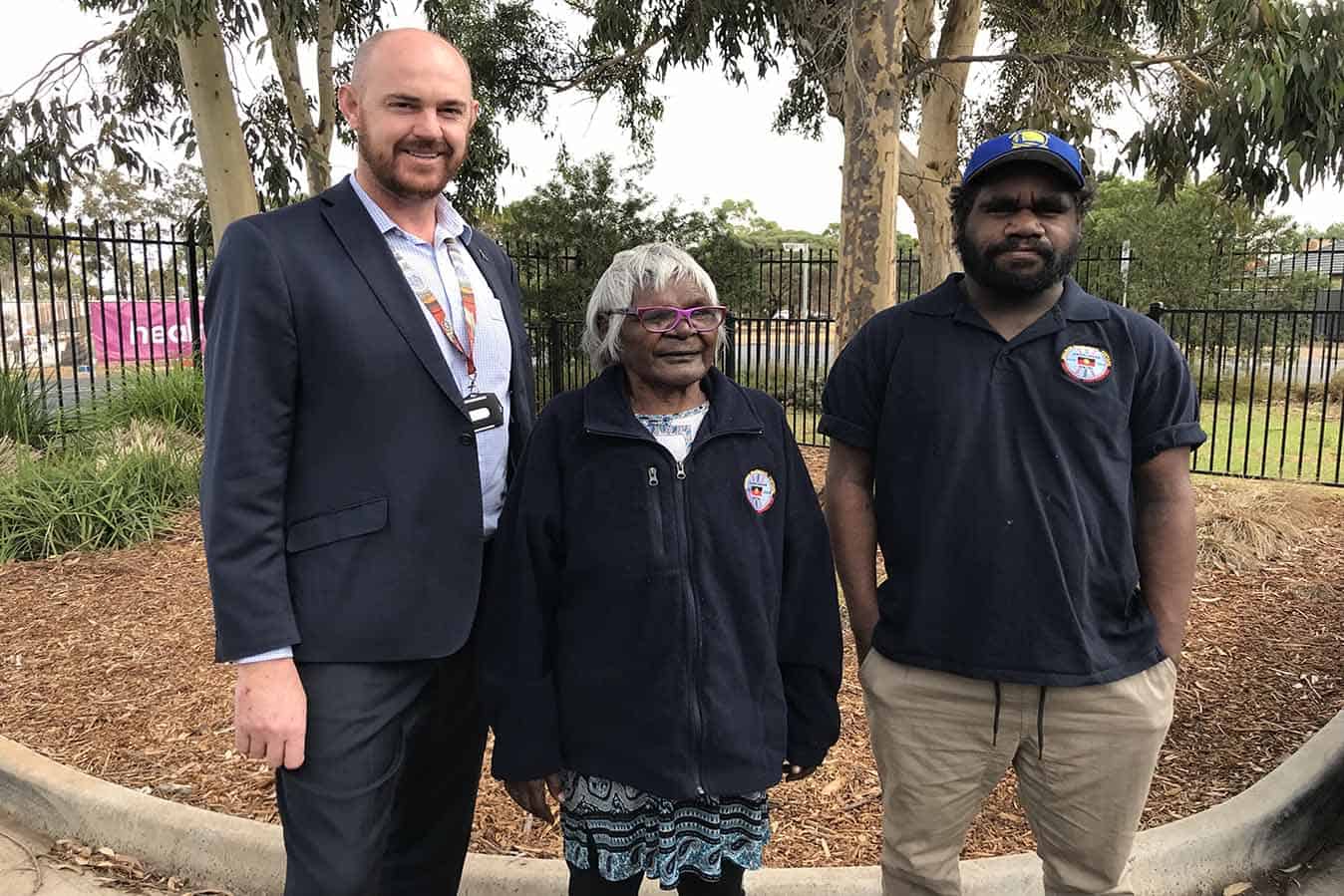Aboriginal traditional healers are working alongside health professionals in Adelaide hospitals to treat patients’ physical, emotional and cultural health and wellbeing.
The Northern Adelaide Local Health Network (NALHN) Aboriginal health team has developed the first formalised and clinical endorsed procedure to support Ngangkari healers working in a health setting, including mental health.
“It’s another resource in the coordination for holistic care. It’s not just treating the symptoms, ailment or pain but also spiritual and cultural needs,” NALHN Executive Director of Aboriginal Health Kurt Towers said.
A Ngangkari is a traditional healer, with origins from the APY Lands and connections to other remote Aboriginal groups within Central Australia. Ngangkaris inherit healing powers through beliefs, bloodlines and traditional training methods, and focus on healing a person’s spirit.
Founder and CEO Dr Francesca Panzironi said traditional healing of the Ngangkari allowed healing of the spirit and helped with a sense of culture in a hospital setting.
“In simple terms, when people get sick the Ngangkari use their traditional healing methods to take away the pain. Patients say things like, ‘I feel the energy had left me’. After seeing a Ngangkari, they say they feel better, like their spirit has returned.”
The formal agreement has enhanced the recognition of the role of Aboriginal traditional medicine within Australian healthcare, Mr Towers said.
“We now acknowledge the Ngangkari as a profession in their own right. We are able to defer to the Ngangkari for traditional healing for Aboriginal and Torres Strait Islander peoples to prescribe traditional treatment. As you might refer to social work for psychosocial needs, you refer for spiritual and traditional healing needs.”
The 60,000 year old Aboriginal traditional healing methods include Pampuni (healing touch), Mapampa (blowing), and Marali (spiritual healing and bush medicines) to complement mainstream treatment.
“From a Western medicine perspective, it’s difficult to conceptualise this kind of diagnosis and treatment, but the Ngangkari methods of healing have a profound effect on patients and complement mainstream treatment,” NALHN Director of Critical Care Dr Simon Jenkins said.
Ngangkari healing is being accessed in acute, rehab, and palliative care in NALHN hospitals including Lyell McEwen, Modbury and a multitude of other sites including mental health and forensic mental health.
Doctors, nurses and allied health staff across NALHN can refer patients for an appointment with a Ngangkari to support their recovery and help patients get better quicker. Feedback had been that Aboriginality and culture was being embraced in this setting now, Mr Towers said.
“It’s closing that gap. It’s complementary not an alternative – complementary to the treatment and management of someone’s care. It’s not done in isolation but in collaboration.
“The addition of this service will help our efforts to Close the Gap and achieve greater health and life expectancy equality for Aboriginal people.
“The formalised agreement, developed in conjunction with the Anangu Ngangkari Tjutaku Aboriginal Coporation (ANTAC) allows ongoing access for patients and supports a culturally responsive and respectful health system that contributes to better outcomes for Aboriginal people.”









12 Responses
This is an awesome initiative. I wish we could introduce it across all hospitals around Australia.
WOW!! Well done – what an amazing step forward.
I think this should be welcomed and introduced at every hospital in Australia.
‘Australian traditional healers working alongside health professionals in hospitals to treat patient’s physical, emotional and cultural health and wellbeing .’This is so essential and so needed in all hospitals and what you are doing in Adelaide is awesome. This is what helps to close the gap.
well done South Australia all hospitals in Australia should follow this initiative.
Such a great initiative to further “closing the Gap” it needs to be implemented into more hospitals in Australia. Good to see spiritual healing and other bush medicines are complimenting mainstream medicine.
This is a great project. I would like to learn more about bush medicine and how the healers apply their medicine and foods and when to call upon a healer and how.
The more we learn, the more we will close the gap.
Yep. Looks good to me.
well done, so much needed!
Please come to QLD!! 🙂
this healer. represents so much, and healing is so much an emotional journey . Beautiful initiative!
I have been reading about the Ngangkari healers for a few years and would love to work alongside them and learn from them. I think there is so much room in all hospitals for healers particularly in the mental health space. It doesn’t make sense for them not to be there.